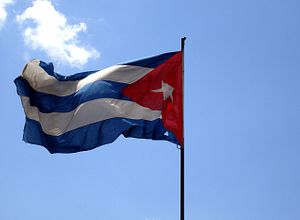Japanese Prime Minister Shinzo Abe will travel to Cuba next week after giving a speech at the UN General Assembly in New York. It will be the first visit by a Japanese prime minister to Cuba.
The Cuba visit, which includes Abe’s meeting with President Raul Castro, is meant to deepen Japan-Cuba bilateral ties. When Washington and Havana resumed diplomatic relations last July, it created a flurry of economic and political opportunities for other countries to exploit.
When he announced Abe’s visit, Japan’s Chief Cabinet Secretary Yoshihide Suga said, “By working for improvements in the business investment environment, the government hopes to help Japanese firms expand into Cuba, which has attracted global attention from both the public and private sectors following its resumption of diplomatic ties with the United States last year.” Japanese companies, such as Mitsubishi Corp, Mitsui and Co., and Marubeni Corp., are trying to increase their engagement with this isolated country.
Japan will also seek Cuba’s understanding and cooperation on the whole spectrum of North Korea-related issues, including Pyongyang’s nuclear and missile programs and abductions of Japanese citizens. Havana is in a unique position to exercise some influence because it still maintains diplomatic relations with Pyongyang.
During the visit, Japan will offer around 1 billion yen ($9.8 million) in grant aid to purchase medical equipment. The finalization of plans to set up a medical facility to train Cuban doctors in Japanese medical practices – and facilitate the sale of Japanese medical equipment – is also expected during this trip.
Japan will also officially offer debt relief – for 120 billion yen out of the 180 billion yen that Cuba owes Japan on uncollected payments and interest for Japanese exports to Cuba – during this visit.
Japan has been trying to be ahead of the curve when it comes to rapprochement with Cuba, and Foreign Minister Fumio Kishida made the first visit by a Japanese foreign minister to the country last May. Natsuo Yamaguchi, leader of the Komeito Party, the ruling party’s junior coalition party, visited Cuba at the invitation of the Cuban Communist Party last week and delivered letters from Abe to Castro and former president Fidel Castro.
But other countries are also actively pushing their agenda; Chinese premier Li Keqiang is expected to make a visit to Cuba this month as well. How Japan will distinguish its economic agenda in Cuba – whether it be engagement through government-backed official development aid or private investments – from China’s is a question that will continue to bedevil Japanese policymakers. The opening of Cuba is just the next chapter in a much longer story of Sino-Japanese competition for influence in (and access to the resources of) the developing world.

































